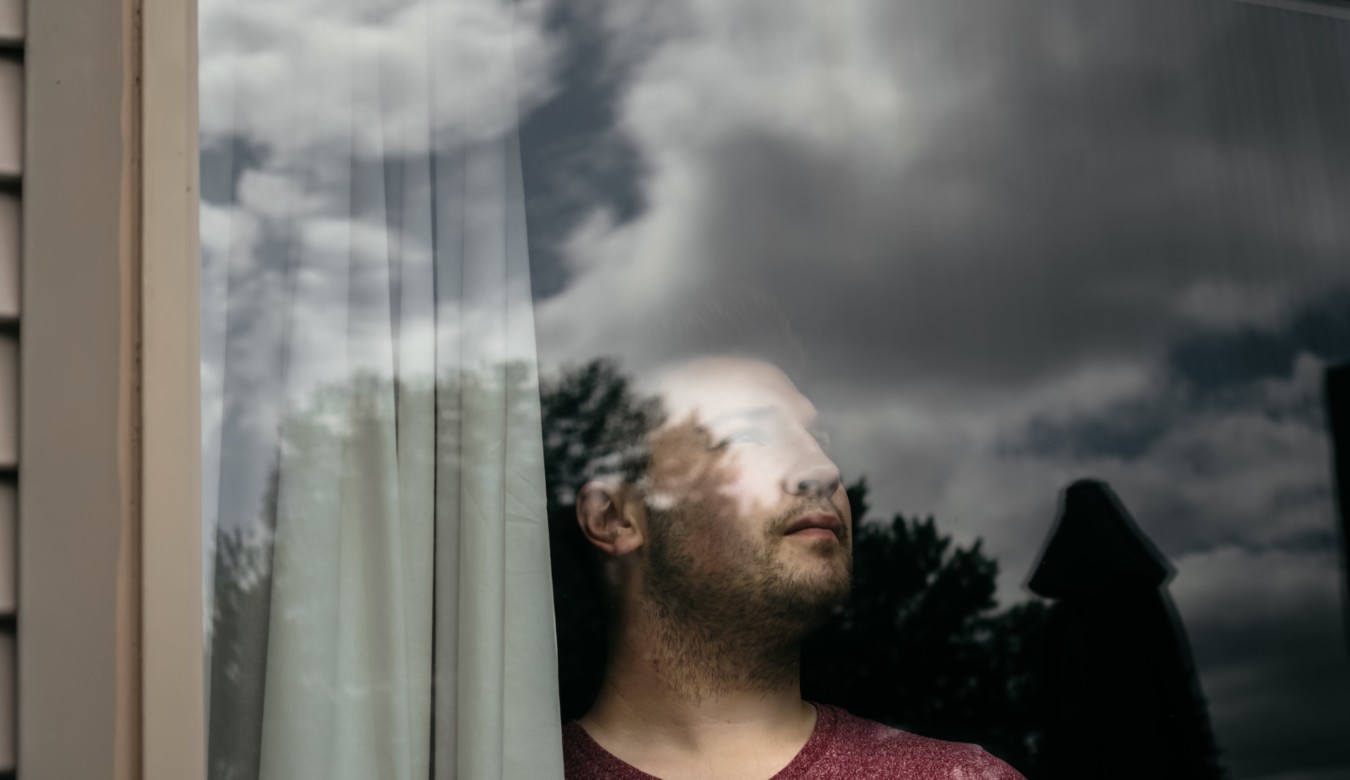
Zak Stein
Nov 1st, 2020
History is unfolding in real time. This is it: we have arrived at the end of the world. Finally. Now we can start to build a new one. This is our chance to reshape ourselves as spiritual, scientific, and ethical beings.
It is hard to know what to say when history is unfolding in real time. Events are pressing in upon us — welcome to the unbearable intimacy of planetary catastrophe.
I have never been through a civilisation-wide transformation before, and neither have you; we are in uncharted waters together. There is a war taking place in heaven concerning the soul of humanity, and it will be fought in each person’s heart, every day, without rest, and into the foreseeable future. I have no choice but to sound metaphysical and religious, because this is where the psyche goes when it enters the liminal.
We are being shaped by vast and complex forces into becoming new kinds of people.
For centuries we have known this war in heaven was playing out. The story was that God had stepped back to let the archetypal energies of humanity reign alone. Usually the order of the world keeps the heavens in their place, as the deeper realities of life are put into the background by the normalcy of routine. But when the world-order fractures and stands poised for major transformation, angels and demons are set to play in a time between worlds, and the match will soon be decided. Every choice takes sides. Everyone is at war with an ‘invisible enemy’ who eats at the root of the self.
This war is about the future of human nature. We are being shaped by vast and complex forces into becoming new kinds of people. We are in a situation to choose between profoundly differing images of ourselves—as gods of generosity, knowledge, and care, or as devils of greed, ignorance, and spite. The war in heaven rages in the silence of quarantine. Alone together, with imaginations tortured by uncertainty, we must remake ourselves as spiritual, scientific, and ethical beings.
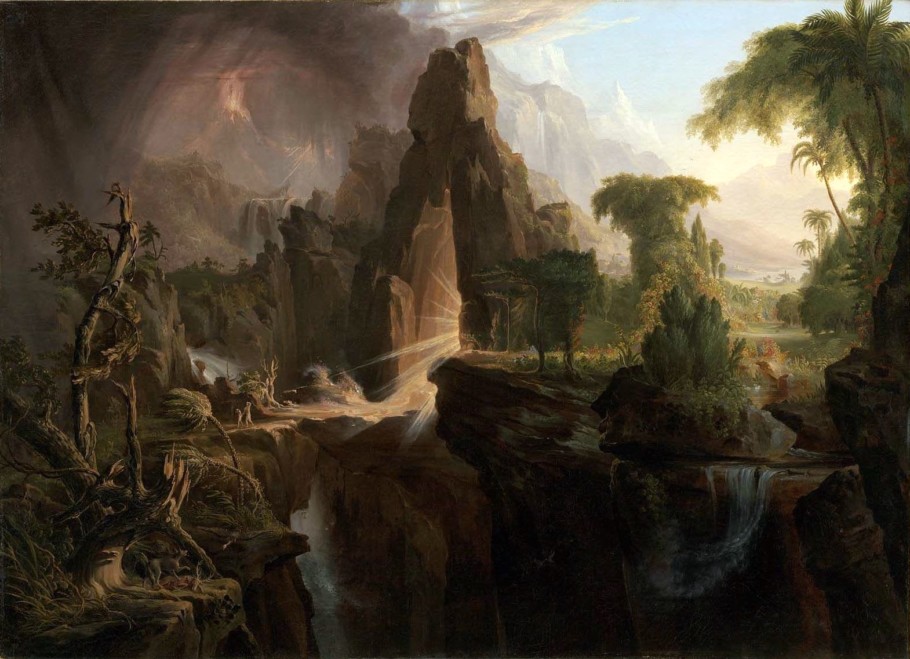
‘The war in heaven rages in the silence of quarantine. Alone together, with imaginations tortured by uncertainty, we must remake ourselves as spiritual, scientific, and ethical beings’. Cole Thomas, Expulsion from the Garden of Eden
My goal in writing this is to offer something helpful to those who are searching for a path out of reaction and into reflection as a basis for right action. You can find opinions, graphs, and facts about the pandemic elsewhere. I am instead tracking the impact of events on human development and attempting to understand how the events unfolding are profoundly increasing each person’s everyday ‘task demands’. At a certain point, humility about what can be known and done dawns on us, and a great learning process begins. Until then there is no way forward; we must let go of yesterday’s frameworks in order to be ready for tomorrow. This crisis can be characterised in many ways, but it cannot be stressed strongly enough that we are in an abrupt educational crisis of a particular kind.
In a matter of weeks, we have become overwhelmed by realities we don’t understand and tasks we don’t know how to do. A great many people will need to quickly transform their capacities, mindsets, and identities if the outcome of current events is to be liveable. Here I will offer only a few words in this direction, focusing mainly on the question of how being a person becomes more complex when the world changes abruptly.
One world is now gone and a new one has yet to emerge; we are now at the beginning of the beginning.
#Eschaton: Prepare for the End
As the horsemen of the Apocalypse ride across the collective imagination we find ourselves unable to look away, transfixed by our news feeds, repeatedly shocked into uncanny moments of realising where we are and what is happening. The passing of time feels different and days matter more as they start becoming too full of experience and dense with meaning. It feels like a sprint—and sprinting right now makes sense for some—but the full arc of this journey cannot be sustained at this pace. What is happening is more of a pilgrimage or exiled wandering, beyond roads and maps. No one can go it alone in this wilderness between worlds.
Who must we become to make it through this together?
What is this? What is actually happening to us?
I’ve seen it referred to as ‘the great unpatterning’, as when a sand mandala is blown away. I’ve also seen it thought about as ‘the great transition’, as when a caterpillar turns into a butterfly.
The dynamics of world-system transition have been understood for some time. We have understood ourselves as on the brink of world historical change since at least 1972 (e.g. Limits to Growth was published; the gold standard was abandoned; a hegemonic secular cycle turned over). I have written about living in a ‘time between worlds’ for a few years now, but today these interesting ideas on the fringes of academia are finding their way into the mainstream and into every living room. One world is now gone and a new one has yet to emerge; we are now at the beginning of the beginning. We are living in the liminal: a time of pure potential and change, a time between worlds.
This is it: we have arrived at the end of the world. Finally. Now we can start to build a new one.
In the liminal, there are dangers involving true existential threats, as well as opportunities for fundamentally good re-patternings of basic social structures and cultural realties. So much is in play as we navigate through the liminal: infrastructure, medical science, educational systems, economics, and politics are all simultaneously in flux. But as I understand it from my perspective as a psychologist, philosopher, and educator, the risks and opportunities in the realms of human development are not being seen clearly enough.
Who are you becoming?
Who are ‘we’ becoming?
What are the images that dominate our reflections and rumination?
How do we know who we are when ‘our world’ falls apart?
What does it mean to be a person living in a time between worlds?
Answers to these questions will determine the course of the coming months and the collective history that follows from them. When the world around someone comes apart, they are placed in a situation where identity transformation becomes necessary. There is an opening into which images and thoughts of all kinds flood the person, when archetypal ideals and horrors are no longer held at bay by the normalcy and routines of the world.
Saving the soul of the world requires large numbers of people ‘popping up’ into a new kind of personhood.
Which of these new visions of self and world will come to possess the person?
Who will I choose to be, when I can no longer be who I was?
This is not a matter of epidemiology; it is a matter of soteriology. To save ourselves means more than not getting physically sick. Saving the soul of the world requires large numbers of people ‘popping up’ into a new kind of personhood. If we accomplish this there would be a flood of goodness into the world, even in the midst of illness. But losing the soul of the world entails large numbers ‘dropping down’ into an old kind of (sub)personhood. The result of this would be a world awash in evil, even as physical illness is ‘contained’. The choice is ours and no amount of information about the details of the pandemic can help us choose.
The right questions to be asking now are about what kind of person you will become in the coming years, not simply about how to survive a quarantine, escape illness, and quell contagion. This will mean different things for different kinds of people.
‘You can’t bullshit yourself anymore. Now you will get to see if you actually know how to meditate and act in a selfless way’.
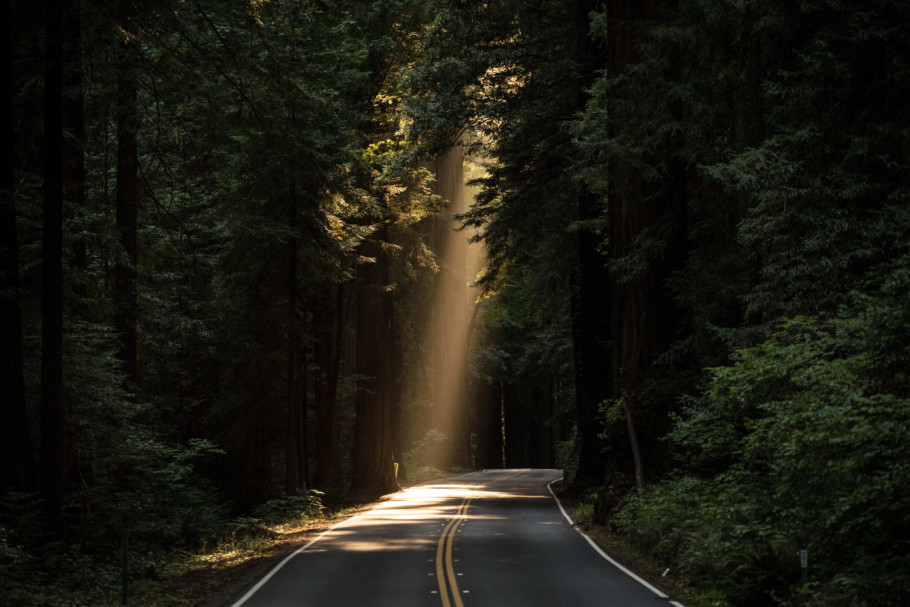
Spiritual Pilgrims: Get Real
For those identifying as spiritual or religious: yes, this is why you have been sitting on the mat, praying, and ‘working on your Self’. But the liminal may require you to re-examine your ideas concerning reality, especially the notion that you create your own. Likewise, if you balked at my use of the terms ‘good’ and ‘evil’ (or up and down), you are likely struggling to make sense of anything right now; socially constructed realties are exactly what begins to slip away when biology obliges you to enter the liminal. Living between worlds means dealing (again) with reality itself, which is not some featureless totality of oneness, but a complex non-dual whole in which every choice counts and has causal impact. This is one of the reasons our situation today demands actual self-transformation: you can’t bullshit yourself anymore. Now you will get to see if you actually know how to meditate and act in a selfless way; not when you want to, when you have to.
Can we distill and clarify our truest commitments and the deepest sources of our personal integrity, which would allow us to be someone good, no matter how bad it gets?
We all know that the streams of wisdom that have come to us from the great religious traditions and elsewhere were never simply about ecstatic experience or personal fulfilment and meaning. There was always—in all traditions—the goal of service, care, and self-transcendence through right action. It is not only that one has an experience ‘beyond ego’ in meditation; one must choose to act in ways that realise trans-egoic motives and values in the world. Make no mistake: you will have to choose and act, now more than ever, precisely in contexts where the fault line between good and bad will begin to cleft severely and in unexpected ways.
There can and should be an explicit trans-lineage symbolic convergence towards new shared rituals of sanity and care.
Spiritual leaders must become the most reasonable and selfless among us, not the most unreasonable and escapist. Practitioners across all traditions must work beyond doctrinal and disciplinary differences toward the creation of a shared field of intention, and towards the shepherding of profound and intelligent care into a world filling up with pain. As represented by the Archangel Michael, the Bodhisattva Tara, or Mary and Christ, there can and should be an explicit trans-lineage symbolic convergence towards new shared rituals of sanity and care.
Scientific Journeymen: Doctor Heal Thyself
For those identifying as rationalists and scientists, yes, this is why you have been researching, thinking, and ‘working towards your optimised self’. This is a crisis of science and medicine, of economics and game theory—it is a situation in which reason must prevail. But it is also a situation that cannot be handled by reason alone. Consider always the thoughts of the heart, which signal to us at the limits of any and all models. We do not face a problem that can be solved from any single paradigmatic angle, nor is there any way to ever know everything needed to act with rational certainty. Rational self-interest is the wrong logic, especially in the domains of science where the pandemic has sparked inter-elite competitions for prestige, funding, and claims to legitimacy as the arbiter of truth. Yet what we actually have here is an opportunity to begin to do a new kind of science, where incentives can be realigned in light of the realities encountered in the liminal. In Kuhnian terms, for better and for worse, we are no longer doing ‘normal science’.
Who and where are the scientists, now that the world has ended, and the prior system of knowledge-production cannot simply be rebooted?
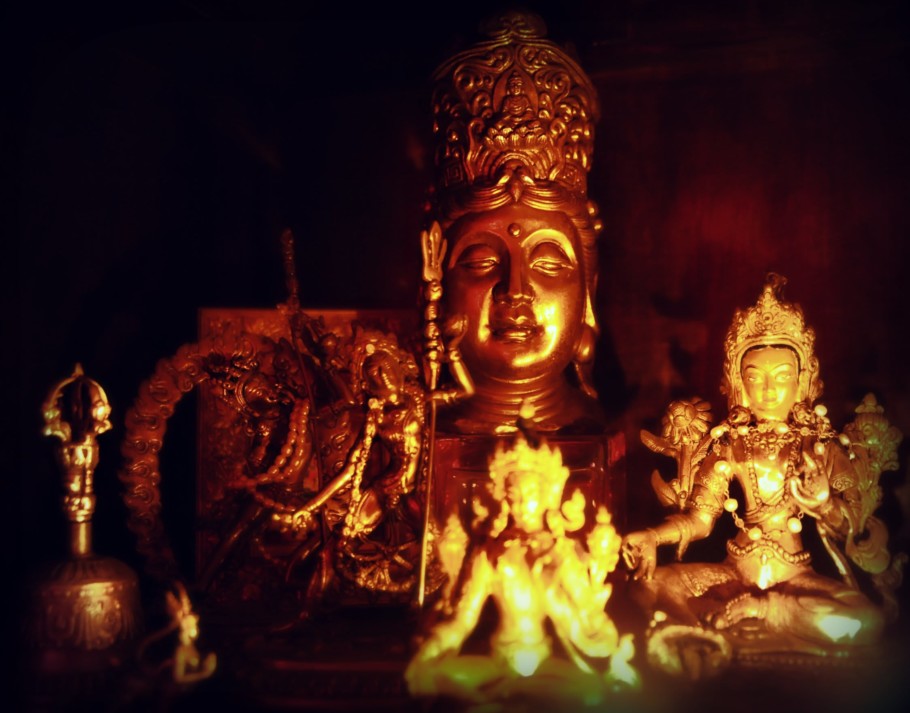
‘Towards the shepherding of profound and intelligent care into a world filling up with pain’.
Being between worlds also means being between ways of knowing the world, being between world views. Yesterday’s world will soon no longer make sense and tomorrow’s world will be known in a different way. Today, between worlds, there are simply too many ways of knowing (not ‘post-truth’, but hyper-truth: too much/many truth(s)).
Our situation absolutely requires a proliferation of metrics and new kinds of mathematical modelling, new conceptions in medicine, public health, education, and psychology. People will understand themselves differently in only a matter of months; personhood will change to include more that is measured, regulated, and factored as a biological aspect of the totalising planetary computational stack. The pandemic is going to usher in an age of new measurement and surveillance infrastructures, which will bring new meaning to the term ‘quantified self’ — more like a quantified planetary self-awareness.
What will be done using this new way of knowing ourselves?
Who do we need to become to be able to wield such profound knowledge?
What scientist is prepared to deal with the ethical complexities around us?
Precious are the moments of world making, when we choose between the high and the low roads.
So again, the war is in heaven, where a competition rages between ideals of what humanity might become now that we are standing poised between worlds and open to an influx of the truly new. Precious are the moments of world making, when we choose between the high and the low roads.
Our hopes lie in the emergence of a new kind of scientist (and a new kind of politician, and a new kind of business leader, educator, etc.). Again, we are looking for a large group of people ‘popping up’ into a novel form of personhood. There appears to be no other way to handle the responsibility of the moment than by using it not only as a chance to remake the economy, education, and the medical system, but also as a chance to remake the way choices are made and values prioritised. This moment must be used to become a new kind of person. As personhood itself is changing, so education must also change.
The Future of Education Begins Now
I have written elsewhere about the fact that we stand poised between various different educational futures, some good, and some bad. When my book, Education in a Time Between Worlds, was published last year, the argument needed to be made that the large school systems built by modernity would soon be transformed drastically. Today it is apparent that such a process is taking place.
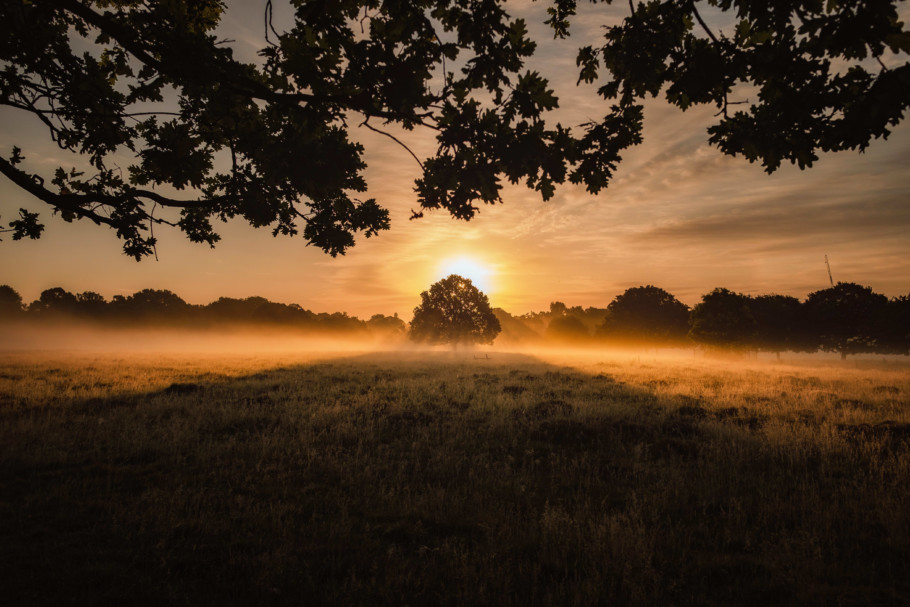
Schools, colleges, and universities across the country are shutting their doors and sending students home to learn in a new way. Each school has dispersed into a distributed educational network, mostly unplanned and makeshift. School districts are figuring out how to make learning happen without school buildings, while colleges are finding a way to operate without a campus. According to my arguments, much of the prior system of schooling would be better left ‘switched off’ so the opportunity can be taken to end modern schooling and begin a new and truly digital era of education.
The pandemic has accelerated trends that were already playing out for the past decade. Due to ongoing crises within the world-system and major growth in informational technologies, public schools around the globe were already being fragmented into educational marketplaces. This has resulted in an incredible diversity and stratification of educational opportunities, which I believe will eventually give way to a radical rethinking of schooling almost by default (today COVID-19 is forcing the issue).
We are seeing more direct-to-consumer offerings, innovations in artificial intelligence-based tutoring systems, and technology-enabled pop-up classrooms beginning to reshape the educational landscape. Given this opening and fragmentation there are sweeping science fiction-like vistas for educational futures. There are futures in which state schools have disintegrated into thousands of for-profit ‘EduShops’ that sell software and face-time. There are other futures in which massive online public schools teach millions of students exactly the same ideas in exactly the same ways, as kids sit at home in front of state-distributed screens for hours on end. These are some of the futures we must fight.
Our great school systems need to be repurposed and redesigned—and now is the time.
Although what I am saying may seem radical (i.e., not returning to schools as we knew them), I am actually fighting for a future that embraces the civilising accomplishments of the public schools built by nation-states around the planet. These vast school systems of the modern world are not to be dismantled or shut down, nor should they be sold off to private enterprises, as is now happening worldwide in what is the largest privatisation of educational institutions in history.
Our great school systems need to be repurposed and redesigned—and now is the time. The school buildings themselves could be transformed into unprecedented institutions that are a combination of public libraries, museums, co-working centres, computer labs, and cooperative childcare centres. Funded to the hilt and staffed by citizen-teacher-scientists, these public and privately supported learning hubs would be the local centres of regionally decentralised pop-up classrooms, special interest groups, apprenticeship networks, and career counselling.
Giant schools built on the model of early twentieth century factories can be gutted, remodelled, and reborn, metaphorically and literally, to create the meta-industrial one-room schoolhouses of the future—21st century temples of learning. Technologies will enable the formation of peer-to-peer networks of students and teachers of all ages, from all across the local region (or the world through video), without coercion or compromise. What enables these safe and efficient hubs of self-organising educational configurations are fundamentally new kinds of educational technologies, which put almost unlimited knowledge in the palm of every person’s hand.
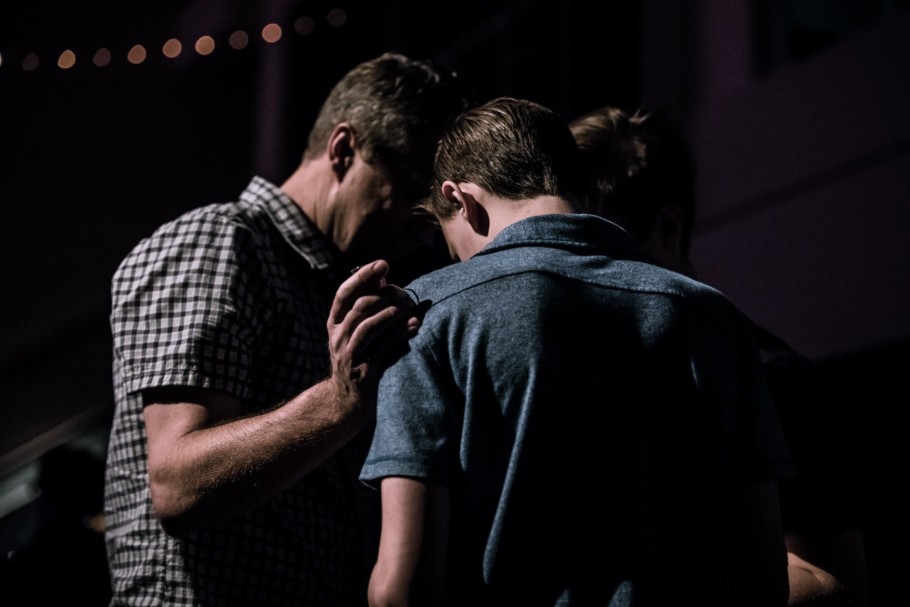
‘There is something else present within death and illness, something more, something profound’.
Let us not forget that the modern sciences of learning, which are ignored in the design of most educational technologies, tell us that learning is optimised when it involves sustained interpersonal relationships, emotional connection, embodiment, and dynamically interactive hands-on experiences. Based on the best of what we know about the dynamics of learning, educational technologies should be bringing people together away from screens–not isolating individuals alone in front of screens. Technologies ought to help us customise learning and provide universal access to information through useful, well organised, and curated content. They should not be the primary locus of attention or main source of interaction and instruction.
Right now, throughout the United States, many schools are being forced to patch together something like the technological backend of just such a future system of education. With makeshift stacks of existing educational technologies, we are experimenting on a massive scale with spoke-and-hub networks of decentralised mini-classrooms. During a ‘stay at home’ order every house in the country becomes a school, and every living room (or kitchen, or bedroom, or dining room, etc.) becomes a potential classroom, at least for a certain amount of time each day. That has not been the case since the era of the one-room school house (i.e., not since pre-industrial education). Under the strain of social crisis, education retreats to its first and truest bastion: the relationship between children, their parents, and a network of concerned and responsible adults.
We should not think that keeping schools running now means having students sit at home in front of their screens all day. We must innovate, radically and quickly. If we do so, it may happen that communities and families will realise that the power of education has been put back in their hands. And although it may feel like a relief when the schools reopen, there is the possibility that most of the learning stays at home, and that the experience of a decentralised, resilient, and innovative digital education makes schools as we have known them appear obsolete. And the scope for renewing the world by no means begins or ends there.
You have always known that being a person is not really about what you do for work or what you can buy.
What would a new vision of healthcare look like along these same lines? Or a new vision of economics and politics?
Which systems should be restarted as they were? Which systems should be rebooted from a fundamentally new kind of hardware and software?
Salt of the Earth: Be Strong and Grow
For all of us everyday people (maybe we are all everyday people now): yes, this is all as crazy as it seems. If you feel like you are losing it, step back for a moment and consider the following.
You have always known that being a person is not really about what you do for work or what you can buy. At some point growing up, we all understood that being someone who has integrity—being a whole person guided by an ethical compass—is not matter of context but of choice and intention. Everyone knows that it is always possible to aspire to wisdom and reason, and to faith. This is true even in the context of profound illness and suffering, even death. We are more than we appear to be, more than our circumstances and conditions. Hospice workers know, along with many healthcare professionals, that beyond the fear, confusion, and pain, there is something else present within death and illness, something more, something profound.
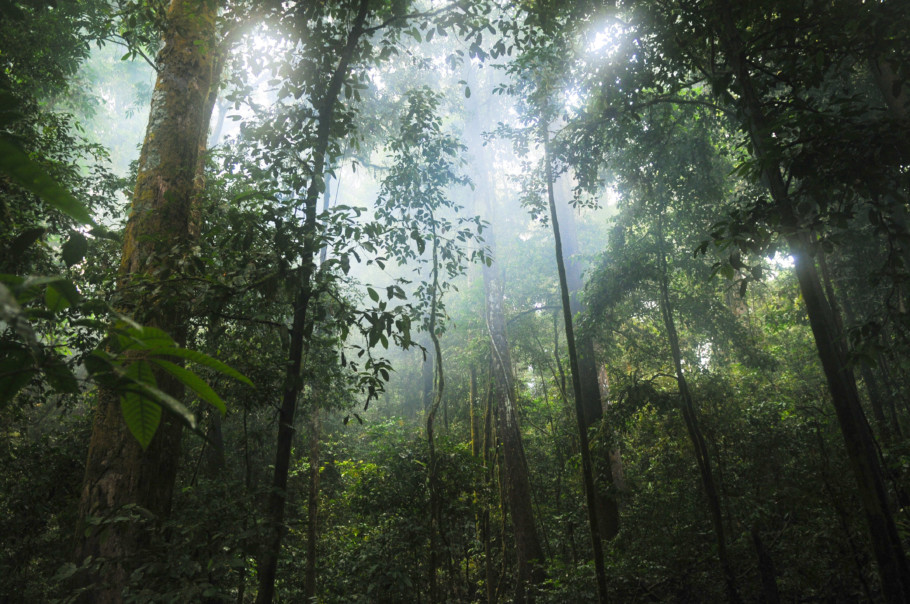
‘Adaptation, evolution, transformation, rebirth, metamorphosis, metanoia, and change — we are in for all of it, and in short order’.
I am not saying we should welcome disease, quite the opposite. I am saying that what is unfolding is about more than just a virus. It is about how we respond to the virus, about who we become as people when presented with a profoundly painful and transformational ordeal.
This is not just about prepping or sanitising or immunising or physical distancing, nor about errors in medical testing, or distorted informational ecosystems (Facebook), or the active disruption of public health for profit going back decades. So much is indeed on the table. Here I’ve been pointing out that there is also a war in heaven taking place that is playing out in each of our hearts, as we make the choices that constitute each of these long and unusual day.
Which of the images of self and world flooding in upon us will we choose to live by?
In the liminal space between worlds, what is required to maintain personhood?
Or better, to transform it?
Help each other to become new people, otherwise we will all demand that the world be put back together again, just as it was.
Finding meaning in tragedy is a perennial human task, as is the task of remaking of the self. We must learn to do both while creating a new world. Grief is warranted. Fear is warranted. Pain is inevitable. But in so far as the future matters, learning must become our primary process. Adaptation, evolution, transformation, rebirth, metamorphosis, metanoia, and change — we are in for all of it, and in short order. These are experiences one might seek out for adventure and growth during saner times; today they are thrust upon us all. Returning to reality is the nature of the liminal, and reality is relationship, not isolation.
To be with each other in reality, to be with the reality of each other, means taking the time to step out of the simulations of reality presented on our many screens. If screens must be used for real-time communication, see through them and into the facticity of the person, however far away, and witness them being transmitted through immensely complex fiberoptic lattices and rare-earth metals.
In whatever way is possible, be with the people you are with today, not longing for yesterday’s version of them, which has gone along with their world. Help each other to become new people, otherwise we will all demand that the world be put back together again, just as it was. That can’t happen; it is physically and logistically impossible. But even if we could return it would be a mistake, because that world was self-terminating, almost by design, and running on borrowed time.
Our job is to hold space while that world unravels, as it must, inevitability. Our job is not to start anew, but to be ready to weave new stories from the collective threads of history.
Zak Stein is a philosopher of education working at the interface of psychology, metaphysics, and politics. He has published two books, including Education in Time Between Worlds, along with dozens of articles. He has worked co-founding a non-profit and think tank, teaching graduate students at Harvard, and consulting with technology start-ups. Zak is a long time meditator, musician and caregiver, which has shaped him more than any professional engagements. Find out more here.
You can follow Perspectiva on Twitter & subscribe to our YouTube channel.
Subscribe to our newsletter via the form below to receive updates on publications, events, new videos, and more…
Perspectiva is registered in England and Wales as: Perspectives on Systems, Souls and Society (1170492). Our charitable aims are: ‘To advance the education of the public in general, particularly amongst thought leaders in the public realm on the subject of the relationships between complex global challenges and the inner lives of human beings, and how these relationships play out in society; and to promote research, activities and discourse for the public benefit in these subjects and to publish useful results’. Aside from modest income from books and events, all our income comes from donations from philanthropic trusts and foundations and further donations are therefore welcome. Please consider donating via the button below, or via Patreon.